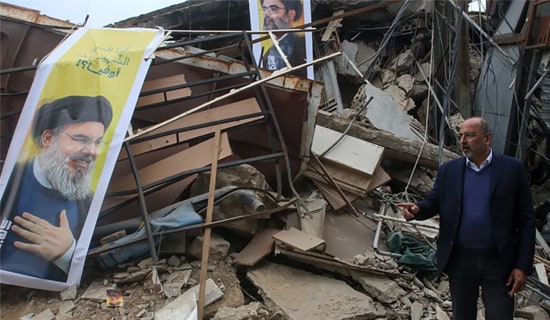Muhammad 'Abd Al-Jabbar Al-Shabout, Director General of the Iraqi media authority the former editor of the government daily Al-Sabah, wrote in his column in this paper about the financial difficulties Iraq is experiencing as a result of the drop in oil prices. He pointed out that the drop in oil revenues will affect the state budget and the citizenry, and advised the state to provide guidance to the citizens on proper consumption. As for the citizens, he urged them to tighten their belts and defer financial demands that burden the state until the economic situation improves.[1]
The following is a translation of Al-Shabout's two columns on this topic:

Muhammad 'Abd Al-Jabbar Al-Shabout (image: almaalomah.com)
Iraq Has No Alternative Source Of Revenue
In his October 21, 2014 column, Al-Shabout wrote: "Recently, there has been a sharp drop in oil prices. This might be good news for the oil-importing countries, but not for the [oil-]exporting countries. It is even worse for rentier states, specifically Iraq. In practical terms, we have no other resources that can fill the void left by the missing oil [revenues]. The state budget is based on petrodollars, and it is calculated based on an estimate of the quantity of oil we will sell worldwide, and on the projected price per barrel. If the price is higher than estimated, we have a windfall, and prosperity; [if not, the situation is] the opposite.
"Today we face the latter. The price per barrel fell below our estimates, which means a budgetary deficit. Our revenue will be smaller than we had hoped and estimated, so the state's ability [to fund] its expenses will be less than the original estimate, which was based on projected oil prices.
"This situation demands rational and wise action, [and] absolute societal unity, among individuals, communities, and the state. [This will enable us] to deal with these circumstances with a single collective stance expressing everyone's solidarity and unity, so that we can get past this stage and limit its negative impact on the lives of individuals, society, and the state. This position requires not only guidance [by the state] for [reducing] expenditures, but also slashing expenditures to what is most essential for protecting the country against financial collapse and bankruptcy. The state might formulate an austerity plan, but it would do no good if the [Iraqi] people do not stand shoulder to shoulder with [the state] and do not heed [its] guidance on expenditure."[2]
Iraqis Must Choose Between Personal Financial Interests And The Supreme National Interest
In his October 23, 2014 column, Al-Shabout wrote: "Our people, with all its components, now faces the important test of choosing between its own private interests, whether communal or individual, and the supreme national interest. The test concerns the burden of the financial expenditure [borne by] the state due to the deficit resulting from the drop in oil prices.
"Every [Iraqi] can continue to make financial demands and try to force the state to meet them. Among these demands are many clauses [that have become law], such as the five-petrodollar [law] demanded by [Iraq's] oil-producing provinces,[3] or payroll or pension supplements approved in the past. But these demands will burden the state, because, financially, it cannot meet them. [Furthermore,] meeting them would constitute prioritizing individual interests over the supreme national interest.
"Instead, the [Iraqi] people can rescind or postpone these demands until the state's economic condition improves. They can [also] agree to all the measures that the state might be forced to take to reduce expenditures, and [heed its] guidance on proper consumption. [Such a choice by the Iraqi people] can be an exalted national position based on prioritizing the supreme national interest above individual and group interests.
"[The choice] of which path to take is in the hands of the citizens."[4]
Endnotes:
[1] Iraq-businessnews.com, October 24, 2014.
[2] Al-Sabah (Iraq), October 21, 2014.
[3] A law approved by the Iraqi parliament in June 2013, which grants each oil-producing province $5 for every barrel of crude oil produced in its territory. However, the law is not implemented in full. For example, it was recently reported that the government had decided to grant the Basra province only one $1 for every barrel of crude. Almadapress.com, November 16, 2014.
[4] Al-Sabah (Iraq), October 23, 2014.





